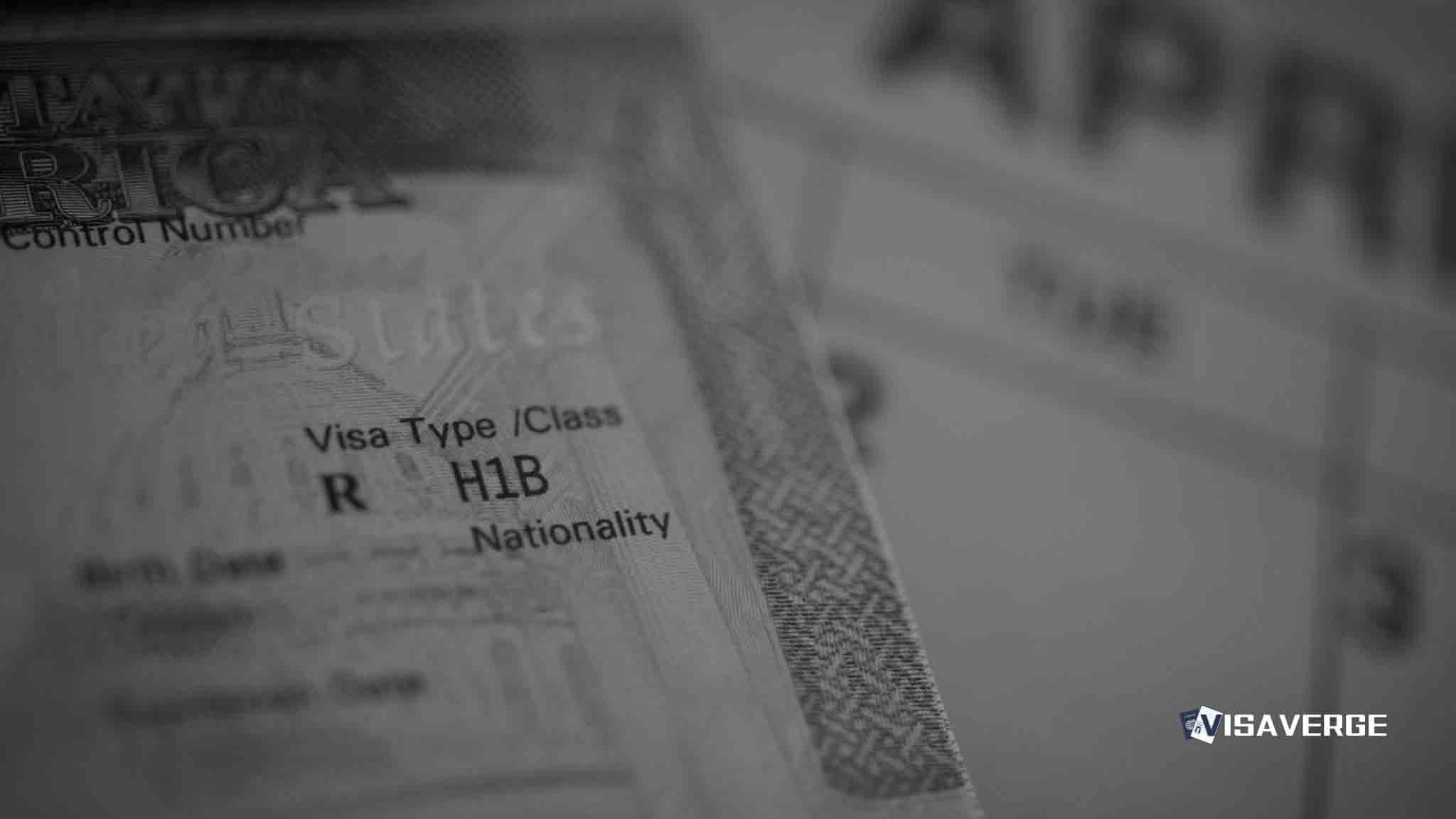The Trump administration has ordered U.S. immigration officials to reinterview refugees admitted to the United States during President Joe Biden’s term, launching a sweeping security review that could strip protections from as many as 235,000 people. The move, laid out in a November 21, 2025 memo from U.S. Citizenship and Immigration Services (USCIS), applies to nearly every refugee who entered the country between January 20, 2021, and February 20, 2025, and pauses their path to permanent residency while their cases are reassessed.
The directive marks an unprecedented step in modern U.S. refugee policy, effectively reopening decisions made over four years and putting hundreds of thousands of lives back under scrutiny. The USCIS memo states that officers will reinterview refugees to reassess security risks and confirm they still meet eligibility criteria for protection in the United States. It warns that refugee status will be taken away for anyone found not to qualify.

“Given these concerns, USCIS has determined that a comprehensive review and a re-interview of all refugees admitted from Jan. 20, 2021, to Feb. 20, 2025, is warranted. When appropriate, USCIS will also review and re-interview refugees admitted outside this timeframe,” the memo says.
Officials argue that Biden-era screening prioritized speed and numbers over careful vetting, and that reopening these files is necessary to protect national security and public safety. The administration claims that the previous White House pushed to have more refugees admitted quickly, without what it now describes as sufficient checks. The memo says a fresh review is “warranted” to ensure none of those admitted pose a threat. In practice, this means USCIS officers across the country will now begin scheduling new interviews, digging back into cases many refugees thought were settled years ago.
The decision is part of a broader immigration crackdown that has already reshaped the U.S. refugee system. In addition to ordering USCIS to reinterview refugees, the administration has halted the processing of permanent residence applications for those who entered under Biden. That freeze affects refugees who would normally be able to apply for a green card after one year in the United States, effectively blocking a key step toward long‑term stability and eventual citizenship.
The wider U.S. Refugee Admissions Program (USRAP) has also been put on hold. The program was indefinitely suspended in January 2025, shutting down the main pipeline that had allowed displaced people to travel legally to the United States after being screened and approved abroad. That suspension stranded thousands of people who had already gone through background checks and interviews and had been told they could travel. According to officials, flights were canceled for more than 10,000 refugees who had been vetted and cleared to come.
The White House has defended the suspension in a formal order, framing it as a necessary step to protect Americans and reshape the system. The order said the halt was needed to safeguard “the safety and security of Americans” and to ensure “the appropriate assimilation of refugees.” It did not set an end date for the pause, leaving the future of USRAP and new refugee arrivals uncertain.
Inside the United States, the consequences are already visible. Advocacy groups say more than 22,000 refugees are now stuck without access to the basic services that usually come with resettlement, including housing support, healthcare enrollment, school placement for children, and job training or workforce development programs. Many of those refugees admitted during the Biden administration had been receiving help from long‑standing resettlement agencies to find homes, enroll in English classes, and look for work. With the new review and related funding cuts, much of that support has abruptly stopped, leaving families to rely on overstretched local charities, relatives, or informal networks.
The human impact reaches beyond those already in the United States. The suspension of USRAP and the order to reinterview refugees have also affected families who were meant to reunite on U.S. soil. Cases involving family reunification, where one family member had already arrived and others were cleared to follow, are now frozen. The delays have hit Afghan allies especially hard. Many Afghans who worked with U.S. forces or diplomatic missions and were promised a path to safety remain stranded abroad, even after being vetted and conditionally approved.
The administration has paired these measures with sharp cuts to future refugee arrivals. The annual refugee admissions ceiling has been slashed to 7,500 for the coming fiscal year, a steep drop from the higher targets announced under Biden. This cap sets the maximum number of refugees that can be admitted in a year, though actual arrivals could be lower given the suspension of the program and the push to reinterview refugees already in the country. Refugee advocates warn that the cut not only limits future resettlement but also signals to other countries that the United States is stepping back from its traditional role in refugee protection.
At the same time, the infrastructure that supports refugees once they land in the United States is being dismantled. The administration has shifted responsibility for refugee resettlement contracts from the State Department, which has historically overseen overseas processing and initial placement, to the Department of Health and Human Services. It has also terminated federal contracts with many of the non‑profit resettlement agencies that for decades have helped newcomers find housing, enroll children in school, access medical care, and integrate into local communities. Organizations including the International Rescue Committee (IRC) and Refugees International have condemned these changes, warning that dismantling these networks will make it far harder for refugees admitted in any future year to settle successfully.
The policy shifts have triggered a wave of legal and political challenges. Critics argue that forcing USCIS to reinterview refugees on such a massive scale undermines the integrity of the previous vetting process and stretches executive power over immigration policy. Several lawsuits have targeted both the indefinite suspension of USRAP and the halt to green card processing. Some court rulings have partially blocked the suspension for refugees who were already conditionally approved as of January 20, 2025, allowing a narrow group to move forward despite the broader freeze. However, the bulk of the restrictions remain in place, and the courts have not so far overturned the administration’s authority to reopen and review existing refugee cases.
Legal experts and advocacy groups say the attempt to reinterview refugees admitted during the Biden years is likely to face further court scrutiny, especially if large numbers of people lose their status. Under U.S. law, refugee status can be terminated if a person is found to no longer meet the definition of a refugee or is judged to pose a security risk. The new policy appears designed to apply that standard across an entire cohort of refugees admitted over a defined period, rather than on an individual, case‑by‑case basis initiated by specific evidence.
For refugees themselves, the policy creates a fresh wave of uncertainty. Many who arrived between 2021 and early 2025 have already started to build lives in the United States, enrolling children in school, working, and paying taxes. The directive to reinterview refugees means they now face the prospect of being called back in to re‑tell their stories to USCIS officers, provide new documents, and wait again for decisions that could determine whether they can stay or be placed in removal proceedings. Community organizations report growing anxiety among refugees admitted under Biden, who worry that small inconsistencies in their original interviews, changes in country conditions, or missing paperwork could now be used against them.
The administration’s supporters insist that these measures correct what they see as past mistakes and bring refugee vetting more in line with national security priorities. Opponents see a deliberate effort to reduce refugee numbers, both by slashing future admissions and by reopening the cases of those already here. They also warn that suspending the U.S. Refugee Admissions Program, cutting the ceiling to 7,500, and dissolving partnerships with resettlement agencies will be difficult to reverse even if a future administration attempts to rebuild.
With the refugee program in limbo, the United States is sending mixed signals to allies and international agencies that have long relied on it as a key pillar of global resettlement efforts. As the order to reinterview refugees takes effect and USCIS begins the slow work of reassessing up to 235,000 cases, the immediate question for those affected is simple: whether the protection they thought they had secured in the United States will endure.
More information on refugee procedures and status is available on the U.S. Citizenship and Immigration Services refugee information page.
USCIS has been ordered to conduct comprehensive reinterviews of refugees admitted between Jan. 20, 2021, and Feb. 20, 2025, potentially affecting up to 235,000 people. The directive pauses green card processing for these refugees and accompanies an indefinite suspension of USRAP and a reduced annual admissions cap of 7,500. Cancellation of flights for over 10,000 vetted refugees and halted resettlement services have left many stranded domestically and abroad. Legal challenges and advocacy fights are underway amid concerns about humanitarian consequences.













